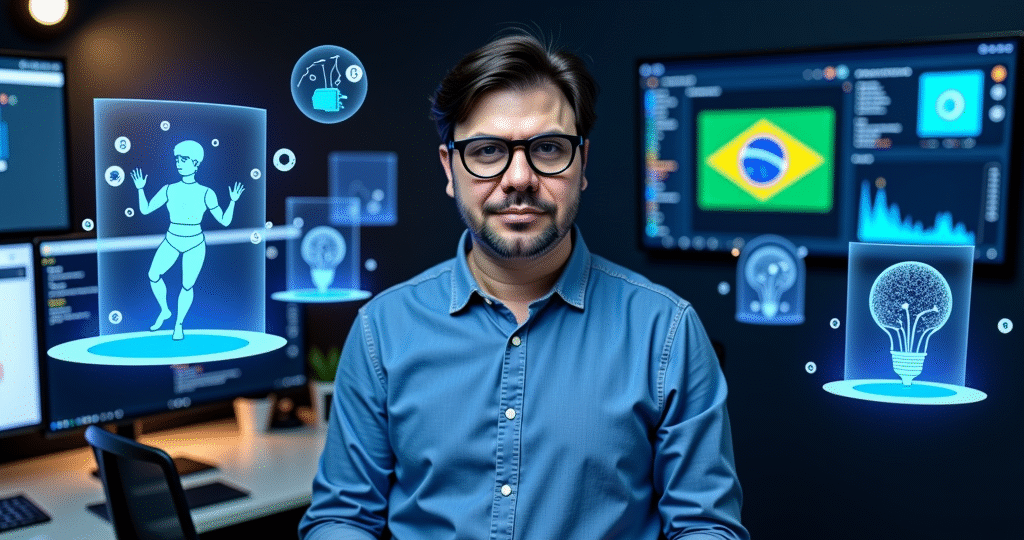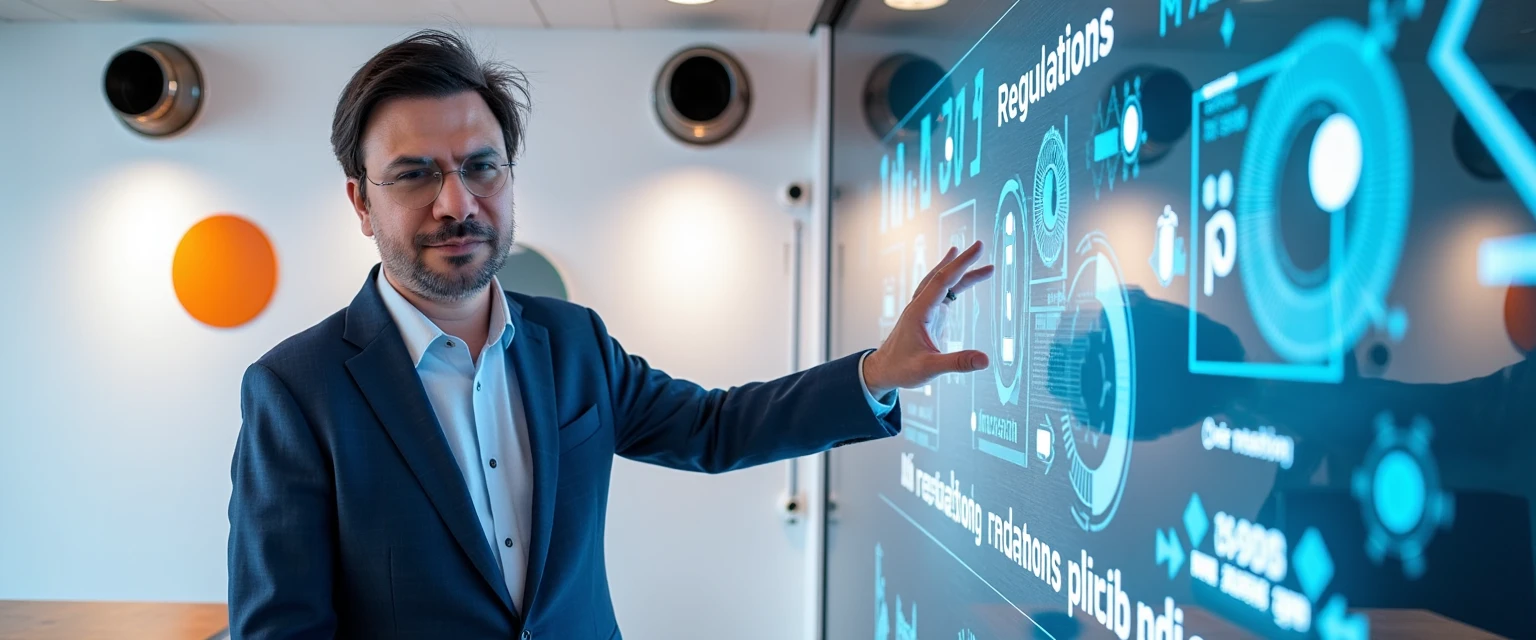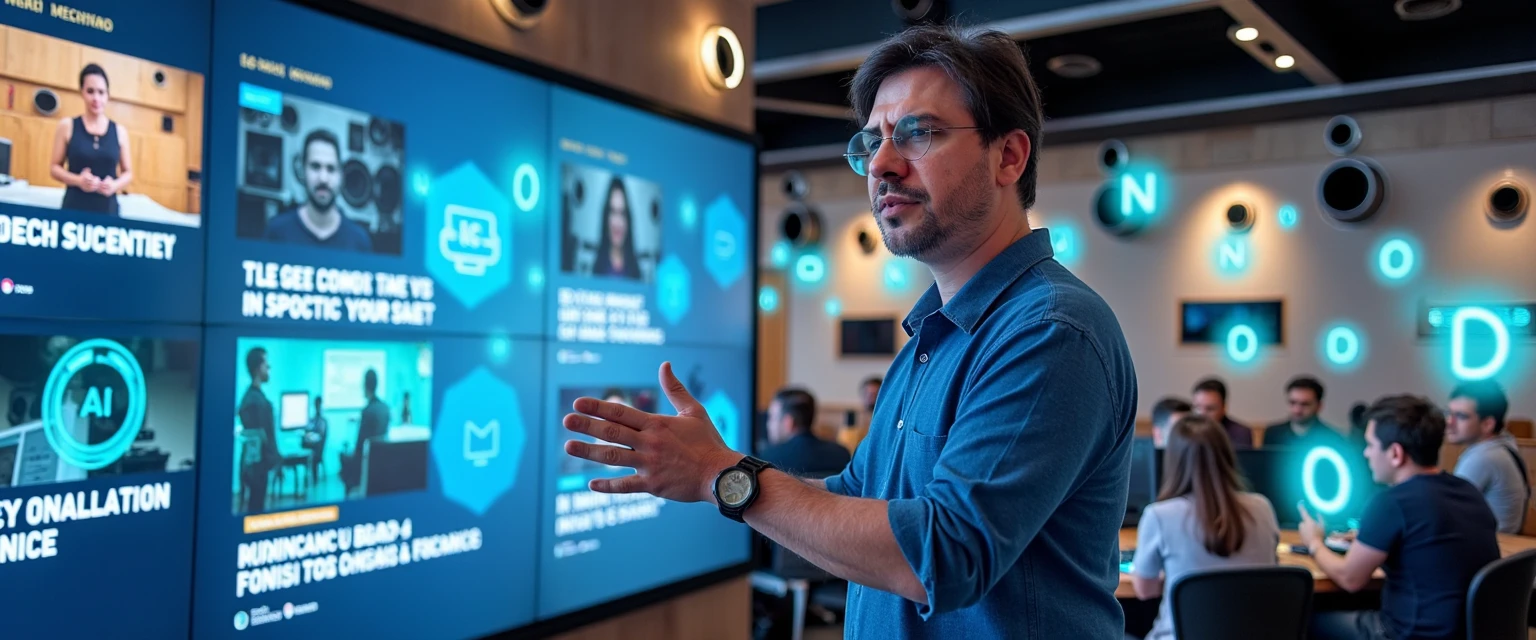93% of Brazilians Use AI But Only 54% Understand What It Is - Why This Paradox Reveals the Biggest Technological Empowerment Opportunity in Our History
August 20, 2025 | by Matos AI

A new survey has revealed something fascinating about our relationship with artificial intelligence: practically all of us already use AI, but few of us know it. And this isn't just a statistical curiosity - it's the key to understanding the future of work and business in Brazil.
The Brazilian AI Paradox
The numbers are impressive. According to unprecedented survey by the Itaú Foundation Observatory with Datafolha, which interviewed 2,798 people in July 2025, 93% of Brazilians already use an AI service. Social networks (89%), movie and music recommendations (78%), navigation apps (63%) - AI is everywhere.
But here's the paradox: only 54% say they understand the concept of artificial intelligence, Even with 82% you've heard of the term. It's like driving a car without knowing how the engines work.
Join my WhatsApp groups! Daily updates with the most relevant news in the AI world and a vibrant community!
- AI for Business: focused on business and strategy.
- AI Builders: with a more technical and hands-on approach.
When it comes to generative AI tools - those that can really transform our productivity - the figures are even more revealing: 57% have never used text generators like ChatGPT, and 69% have never accessed image creation platforms.
Why It Matters More Than It Seems
In my more than 25 years working with innovation and technology, I have rarely seen such a huge gap between the use and understanding of a transformative technology. And this represents both our greatest challenge and our greatest opportunity.
Think of it this way: if you're already using AI indirectly every day, imagine what could happen if you knew how to consciously use much more powerful tools. It's the difference between being a passenger and being the driver of your own transformation.
The Knowledge Gap as a Competitive Advantage
The survey shows that 74% of Brazilians already use generative AI to answer questions about investments and personal finance. According to an analysis by GZH, tools such as ChatGPT, Claude, Gemini and Perplexity are democratizing access to financial advice.
But here's the point: whoever manages to master these tools first will have a significant competitive advantage. It's like having access to a 24/7 personal consultant while others are still trying to understand how it works.
The World Is Reorganizing While We Discuss Concepts
While Brazil is trying to understand what AI is, the global scenario is moving fast. Mark Zuckerberg is promoting a new restructuring at Meta, It has created four groups focused on research, superintelligence, products and infrastructure.
Meta has already invested about US$ 14.3 billion in the startup Scale AI in 2025, as well as offering stratospheric salaries to attract talent from OpenAI and Google. This isn't just a technology race - it's a complete reorganization of the digital economy.
The Controversial View on Traditional Education
Jad Tarifi, founder of Google's first generative AI team, made a controversial statement: traditional courses such as law and medicine are a “waste of time” in the age of AI.
Although I don't completely agree with this radical view, there is an important truth here: the speed of technological change is outstripping the speed of traditional education. Generation Z can spend years on PhDs while AI evolves exponentially.
Tarifi recommends focusing on social skills, emotional awareness and unique visions. This resonates with my CACACA concept - Creativity and Autonomy, Collaboration and Adaptability, Connection and Affection - the six essential skills for the future of work.
The Dark Side We Can't Ignore
It's not all flowers. A expanding data centers to support AI is creating significant socio-environmental tensions. Energy and water consumption, greenhouse gas emissions and the impact on marginalized communities are all issues we need to address.
A study by the Laboratory for Public Policy and the Internet (LAPIN) analyzed companies such as Amazon, Google, Microsoft, Ascenty, Elea and Scala, finding increases in emissions and consumption, low transparency and dependence on carbon credits that mask real impacts.
The Brazilian survey also reveals legitimate concerns: 42% fear for privacy, 36% worry about manipulation and surveillance, 34% about mass unemployment and 31% about fake news.
Forced Integration and Its Implications
Meta AI on WhatsApp is a perfect example of this tension. Since October 2024, the functionality has been integrated into in Brazil, the United Kingdom and the Philippines, but it is not possible to remove it completely.
This illustrates a crucial point: AI isn't coming - it's already here. And it's being integrated into our everyday tools, whether we like it or not. The question is: are we going to be passive in this process or are we going to empower ourselves to consciously take advantage of it?
Education as the Key to Transformation
There are encouraging signs. In education, 69% of Brazilians say that AI helps them a lot with their studies, 75% said they had learned something new, and an impressive 90% advocate the inclusion of conscious use of AI in schools.
This shows that we are open to transformation, but we need direction. In my experience founding innovative educational initiatives, I see that the problem is not resistance to change, but a lack of adequate training.
The Divided Labor Market
The survey reveals an interesting division in the labor market: 49% see a risk of unemployment versus 51% who see no threat. Meanwhile, 43% recognize positive impacts on the way they work.
This division reflects exactly what I see in the companies I advise: those who prepare see opportunities, those who don't see threats.
The Global and Local Perspective
It's interesting to see how different regions approach AI. O Triennial Congress of the African Catholic Press Union in Ghana focused on the balance between technological progress and the preservation of human values.
Martine Lajoie, Secretary General of UCAP, pointed out that “AI must be seen as an instrument at the service of humanity” and called for vigilance against abuses. It's a more humanistic approach that contrasts with the unbridled race for profits that we see in some companies.
The Brazilian Opportunity
Brazil has a unique opportunity. We are the country that uses the most social networks in the world, we have a robust fintech ecosystem and a young, adaptable population. If we can connect this natural use of technology with knowledge about AI, we can create something extraordinary.
The survey shows that 41% believe in AI's contribution to scientific and educational advances, and 39% expect improvements in medical diagnoses and treatments. There is optimism, there is demand, the only thing missing is knowledge.
What This Means For You
If you've come this far, you're probably one of the 46%s who don't yet use generative AI directly, or the 54%s who do but feel they could make better use of it. In either case, you're in the majority.
And that's good news. It means that there is still time to position yourself among the first to master these tools in your sector, in your company, in your area of activity.
We're not talking about replacing humans with machines. We're talking about humans equipped with AI outperforming humans without AI. It's a race that's only just begun, and you can enter now.
Where to start
Start small, but start today:
- Test free tools: ChatGPT, Claude, Gemini, Perplexity have free versions
- Apply it to your work: Use to summarize texts, create presentations, analyze data
- Try it in your personal life: Financial planning, travel itineraries, personalized recipes
- Learn the basics: Understanding how it works, limitations, good practices
- Connect with communities: Join groups that discuss applied AI
The Future Is Collaborative, Not Substitutive
After supporting more than 10,000 startups and observing dozens of technological transformations, I can say this: the best transformations happen when technology enhances human capabilities, not when it replaces them.
AI won't replace us. But people who know how to use AI will have an advantage over people who don't. It's as simple as that.
The paradox of 93%s who use but only 54%s who understand is not a problem - it's the greatest opportunity for technological empowerment we've ever had. And Brazil, with its natural creativity and cultural adaptability, can lead this transformation in a unique and humanized way.
In my mentoring and in the projects I develop, I help entrepreneurs and professionals navigate exactly this transition: how to use AI to boost business without losing the human essence that sets us apart. Because, at the end of the day, technology is a tool - it's the people who know how to use it who make the difference.
The revolution has already begun. The question is no longer whether it will happen, but whether you will be a protagonist or a spectator.
✨Did you like it? You can sign up to receive 10K Digital's newsletters in your email, curated by me, with the best content about AI and business.
➡️ Join the 10K Community here
RELATED POSTS
View all



